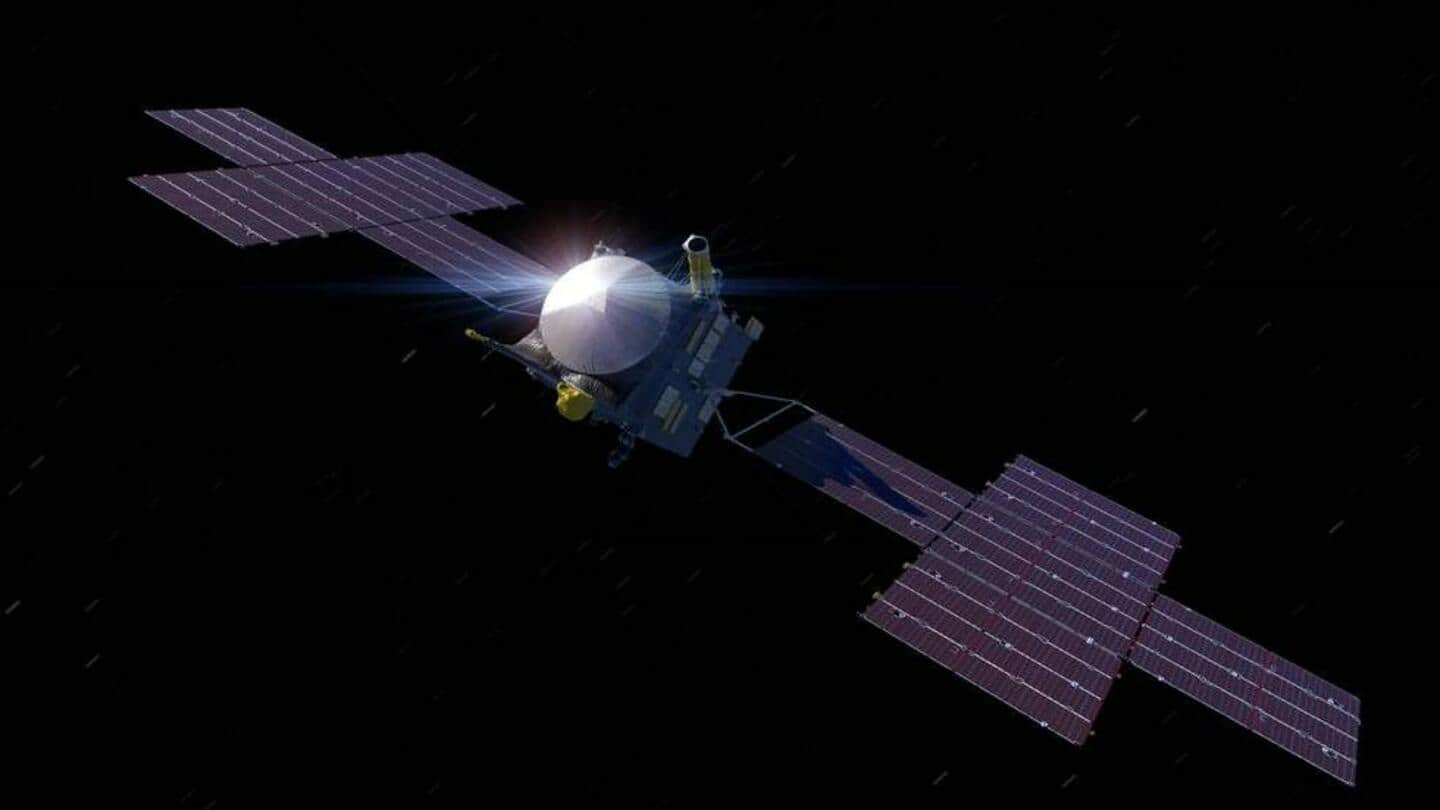
NASA Psyche to launch in October: Facts about asteroid-probing mission
What's the story
NASA's Psyche mission is now scheduled for launch in October. The space probe is built to explore a unique, metal-rich asteroid called Psyche 16 which lies in the main asteroid belt between Mars and Jupiter. The mission was originally planned to launch between August and October 2022 but was delayed since the spacecraft's flight software and testing equipment were not delivered on time.
Context
Why does this story matter?
The Psyche mission will be the "first-ever exploration of a world made largely of metal." The space probe will examine the Psyche 16 asteroid which is made up of metal, and not rock and ice. Before this, NASA's Galileo mission was the first spacecraft to fly past an asteroid. It flew past asteroid Gaspara in 1991 and Ida in 1993.
Delay
Why was the mission delayed?
The delay in supplying the software and testing equipment meant there was not enough time available to complete the testing and keep up with the scheduled launch date in 2022. If everything goes well following the launch this year, the Psyche spacecraft is scheduled to achieve a Mars gravity assist in 2026 and is expected to arrive at its target asteroid in August 2029.
Significance
The mission will provide insights into formation of terrestrial planets
Why is the Psyche mission important? For one, it will provide insights into the building blocks of planet formation, specifically iron cores, which have not been explored before. While metallic cores are present in terrestrial planets, including Earth, they lie far beyond our reach. Psyche, on the other hand, will provide information into the history of collisions and accretion that created terrestrial planets.
Mission
Psyche will conduct science investigations from four staging orbits
After the Psyche spacecraft successfully arrives at its target asteroid in 2029, it will perform science operations from four staging orbits, which are orbits that are made at consistently declining altitudes above the asteroid's surface. During these orbits, the spacecraft will obtain information on the asteroid's characterization, gravity science, elemental mapping, and topography.
Information
The mission will test a new communication technology
The mission will also test a new laser communication technology that encodes data in photons at near-infrared wavelengths to communicate with Earth. By using light, instead of radio waves, the spacecraft will be able to relay more data in a given amount of time.
Monitoring
The Psyche mission was chosen by NASA in 2017
The Psyche mission is led by Arizona State University while NASA's Jet Propulsion Laboratory (JPL) is responsible for the mission's overall management, system engineering, integration and test, and mission operations. This mission was chosen by NASA in 2017 as one of two missions for the space agency's Discovery Program, a series of relatively low-cost missions to select targets in the solar system.